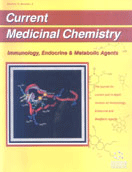Abstract
The two members of the relaxin family of insulin-like peptide hormones, relaxin and INSL3, and their cognate G protein coupled receptors LGR7 and LGR8, respectively, are present in human tumor tissues. Although the physiological role and signal transduction pathways engaged by relaxin-like members in tumor tissues are still largely unknown, novel data mainly obtained from in-vitro cellular models suggest that relaxin-like peptides influence cellular functions associated with motility and migration, cytoskeletal rearrangement and enzyme production and secretion. The expression of relaxin-like peptides appears to be regulated in a tumor-specific context by the actions of various nuclear receptors. This review summarizes most recent findings on the potential functions of relaxin/ INSL3 ligand-receptor systems in tumor tissues and follows an organ-specific approach.
Keywords: relaxin, insl, lgr, tumor biology, breast, prostate, thyroid, mtc
 1
1








